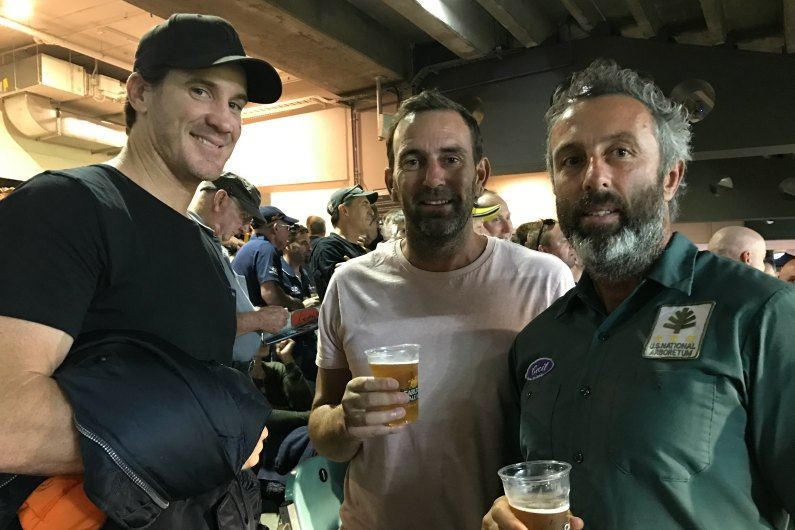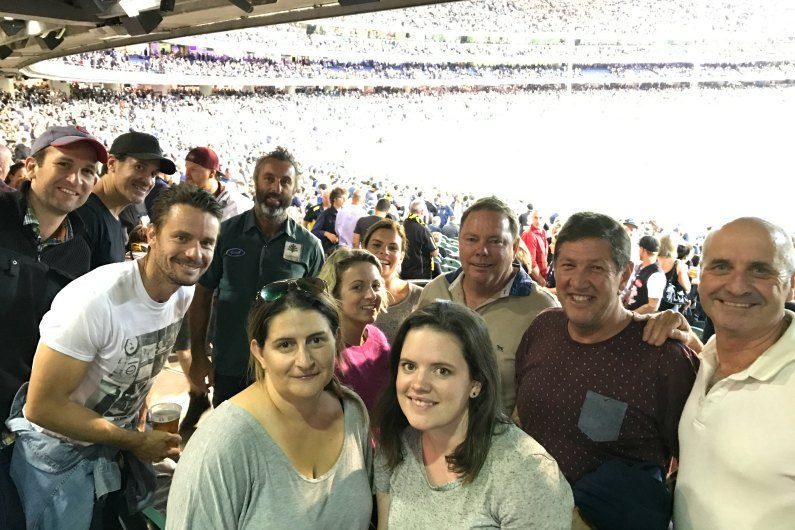During Leading Teams training last week, we decided as a team to go and watch the AFL Carlton vs. Richmond first-round game at the MCG – two of the teams I played for in my football career.
That, along with an activity that we did at training, “I love working at Leading Teams because…”, made me reflect on the last 20 years and how I have come to where I am today. There have been two constants in that time – Australian Rules Football and Leading Teams.
First introduction to Leading Teams
I started working for Leading Teams as an athlete facilitator while playing for Carlton in 2000. I still remember our facilitation training with Ray where we were taught a number of techniques and tools that I still use today. The programs we were running were with school children, junior sports teams, at-risk youths and in the juvenile detention centres. These were very challenging but rewarding audiences and I always had to be ready for anything that could arise. If I didn’t engage the kids early I would lose them for the day so it was a great test of my facilitation skills and a great foundation for what we implement today.
In 2003 I was delisted by Carlton and then drafted to Richmond for the 2004 season. Other than getting another opportunity to play AFL, I was also able to experience the Leading Teams model as a player. Kraig Grime was facilitating the program at Richmond and it was great to be able to participate in sessions where the team was having genuine conversations. One activity that comes to mind was when we had to rate our team mates in order of who had done the best pre-season. This was used to allow us to reward and challenge individuals within the team and give the guys that had been challenged the opportunity and support to make the improvements required for them to have the best season they could.
I only had one year with Richmond and at the end of the 2004 season I knew I needed to get away from football for a while. I had given everything in my nine years in the AFL and physically and mentally needed a change, so I decided to explore the world for a couple of years.
Upon returning from my travels I started a drafting course but decided at the end of my first year that my passion was with helping people improve rather than sitting behind a computer. I decided to contact Ray and Kraig (the directors at Leading Teams) to see if they had any work available.
As luck would have it they had a full-time position that had just come up. I went in for the interview and got it. My major role was looking after the AFL Players Association Football Apprenticeship Program where I would be working with first-year players at most of the AFL clubs as well as having the opportunity to get involved in corporate work.
Coming back to the team
After two years in that role I saw a job advertised for the Player Development Manager role at the newly-formed AFL club, the Gold Coast Suns. With amazing support and consultation with everyone at Leading Teams, I got the job and moved to Queensland.
I maintained a strong relationship with Ray and Kraig and in my sixth year with the Suns we started having conversations about Leading Teams expanding into Queensland. They then offered the opportunity to me.
My role at the Suns allowed me to follow my passion in helping people but returning to Leading Teams gave me an opportunity to push myself back into the corporate field, whilst allowing me to continue to work in my other passion, AFL. Having the variety of teams to work with was something that excited me.
Since returning to Leading Teams there have been lots of challenges and changes in both in my work and private life and these were key points that lead my thinking when Ray posed the question “I love working at Leading Teams because…..” at training last week.
These were my responses.
I love working at Leading Teams because……….
1. I have no fear in asking questions and asking for help
I have found through my experience working with teams, something that stops people from asking questions or for help is a fear that others may think they don’t have the competence to do their job or pride; in other words, there is a lack of trust. If this occurs in your team there is a real risk of people making mistakes that can have a severe impact on your business. As a leader if you don’t have a culture that allows people to ask questions and get clarity on why/what they are doing then you run the risk of poor performance.
2. I always feel valued and that I am an important part of the team
At Leading Teams we live our model. This means that everything we do with our clients we do internally with our team. We empower everyone to be a leader and that is done by living our trademark (modelling behaviour) and rewarding and challenging others.
We create opportunities to share what our business looks like and different things we have tried with clients as well as observe each other facilitating – everyone’s opinions, views and feedback are not only valued but expected. Everyone in the team sees these as opportunities for the primary reason of improving our individual and team performance.
If we do not allow people to share their opinions, ideas and give feedback we are at a risk of missing out on great opportunities for improvement. If team members see ways to improve but they don’t feel safe or don’t have an opportunity to share their views, things will continue to be done the way they always have.
No one is smarter than all of us. We have so many resources (people) so why not make the most of them?
3. I spend a lot of time out of my comfort zone and enjoy the challenges
Our work, by its nature, throws up lots of different situations. No two teams are the same. Some of the teams I work with are performing well and want to go to another level and some others are dysfunctional. The beauty of being a facilitator, rather than a trainer, is that we don’t go in with a ‘one size fits all’ approach. It’s about the team identifying what high performing looks like for them, identifying the gaps, then committing to a path that will lead them to improved performance.
Learning to be vulnerable and sharing with both clients and my own team also continually gets me out of my comfort zone. To have relationships that allow you to share the things that are going on in all parts of your life will only help your performance at work. In a supportive environment, your team can enjoy the wins you are having but also support you in your challenges.
4. I feel supported and trusted which drives me to continually improve
I have found through my own experiences that when I’m empowered and trusted it drives me even harder to make sure I am doing everything I can to repay that trust.
The most important part of empowerment is the training and support that must be put into the individual. Are we setting them up to succeed or to fail? To set them up to succeed we spend time giving the person the skills (competence) and the confidence to be able to complete the task. This, along with a strong professional relationship that encourages feedback both ways, will allow the individual to get the best outcome possible.
This type of environment also gives the person an opportunity to continually push themselves and improve their performance.
5. Although I spend a lot of time working on my own I never feel as though I’m alone
At Leading Teams, one of our trademark behaviours is ‘find ways to collaborate’. This can come in many forms and to me, one of these is asking for and sharing ideas and opinions with others in different situations we may face. This might be in facilitation with teams or business development. If I have a situation with a client that I might have concerns about or just want to get someone else’s view, I have no hesitation whatsoever in contacting any of my teammates.
Another trademark behaviour is ‘show genuine care for each other’. Although we are geographically separated our team have regular contact with each other whether it be a conversation about work or just to check in and see how we are going. We also commit to spending one day a month and two extra days a quarter all together as a team. Part of this time is spent on business mechanics but the main reason is to continue to build on our relationships and our culture (team dynamics).
The purpose of the “I love working at Leading Teams because…” exercise was to affirm that as team we are doing a lot right. In times where things are going against us we can go back to these points to get us back on track and thinking about why we love what we do rather than dwelling on any negatives.
Simon started with Leading Teams in 2000 as an athlete facilitator then progressed to a full-time facilitator. He rejoined Leading Teams in 2015. Simon is based in Brisbane.
Learn more about Simon.






